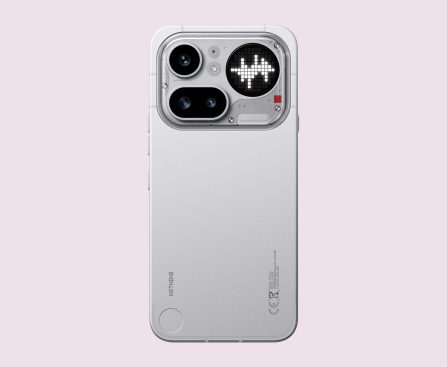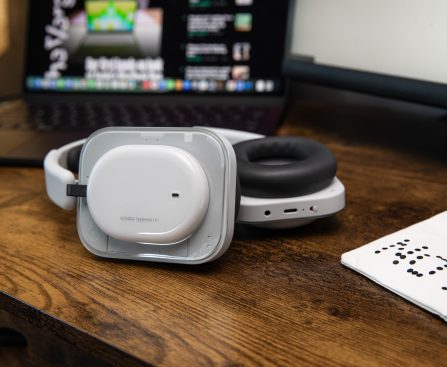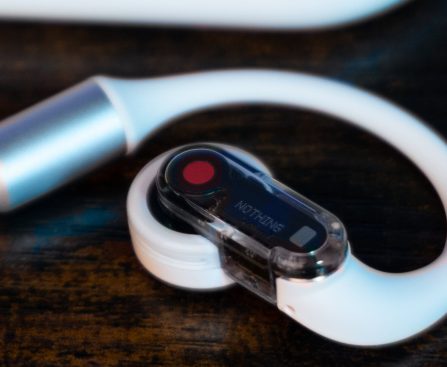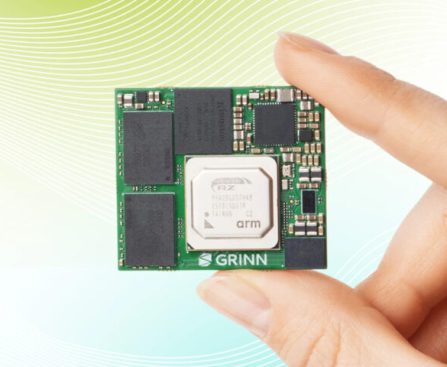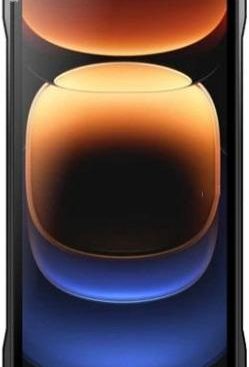Today Nothing has revealed the 4A and 4A Pro, its latest midrange phones. The two look startlingly different from one another, with varying designs and Glyph Light interfaces. The Pro is especially striking: it’s the first Nothing phone to almost entirely abandon the brand’s trademark transparent design. I’m currently at Nothing’s launch event in London, […]
Nothing’s Headphone A are Worth Considering
After the release of the Headphone 1 last year – Nothing’s first over-ear headphones – the company is back with the Headphone A. They’re a slimmed-down over-ear option that keep the Nothing design aesthetic and excellent controls while decreasing the weight and bumping battery life up to a maximum of 135 hours. There are some […]
New Earphones from Nothing Provide Battery Life of One Week
Nothing’s new Headphone (a) claims to offer five days of battery life for a price of $199.
Essential information
- Nothing introduces the Headphone (a), boasting up to 135 hours of playback with ANC disabled—approximately five days of uninterrupted listening on a single charge.
- Rapid charging enhances ease of use, as a five-minute charge can provide around five hours of playback.
- Prices start at $199 (£149 / €159), with pre-orders starting March 5 and general availability beginning March 13.
Concerns about battery life are still prevalent among wireless headphone users. Even leading products from brands like Sony or Bose often require recharging every few days. Now, Nothing is making a bold promise: a new pair of over-ear headphones that can last nearly an entire week.
The firm has just revealed the Headphone (a), which merges Nothing’s distinctive design with impressive battery longevity and some intelligent controls for everyday usage.
If you’ve encountered a Nothing product previously, you’re familiar with the aesthetic: industrial design with a playful flair. The Headphone (a) retains this style but introduces a more vibrant character.
Available in four colors: pink, yellow, white, and black. They weigh 310g and come with breathable memory foam ear cushions for prolonged comfort during listening sessions.
They hold an IP52 rating, ensuring protection against dust and light splashes. This means that sweaty workouts or a little rain won’t pose any problems.
Five days of battery life (indeed)
The standout feature is the battery life. Nothing claims that the Headphone (a) can endure up to 135 hours with ANC switched off, which equates to about five days of continuous listening on
Grinn ReneSOM-V2H: Compact LGA SoM with Renesas RZ/V2H for Vision AI – CNX Software
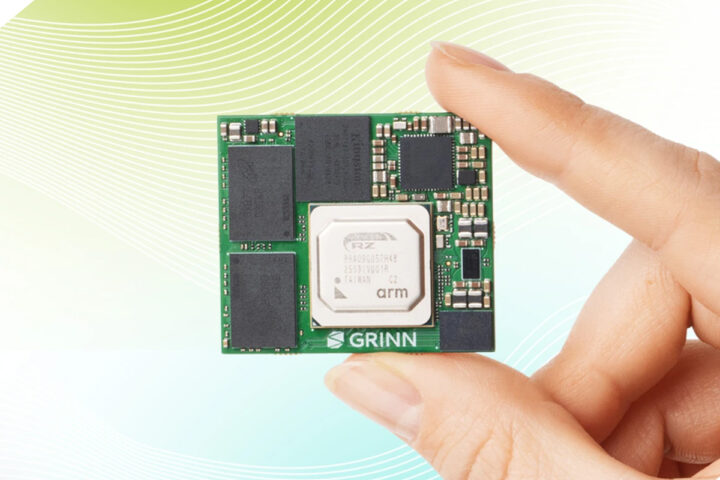
Polish embedded systems company Grinn has recently introduced ReneSOM-V2H, a tiny vision AI SoM built around the Renesas RZ/V2H vision AI processor. Measuring just 42.6 x 37 mm, Grinn claims it is the worldâs smallest module based on this specific Renesas MPU, and targets space-constrained Edge AI applications such as smart cameras, robotics, and industrial automation. The RZ/V2H SoC features a heterogeneous architecture with 4x Cortex-A55 cores, 2x Cortex-R8 cores, and 1x Cortex-M33 core, along with a DRP-AI3 accelerator with up to 8 TOPS. It supports LPDDR4 memory and eMMC storage, along with various connectivity options, including PCIe Gen3 (4-lane), USB 3.2, USB 2.0, and Gigabit Ethernet. It also provides four MIPI-CSI camera inputs and a MIPI-DSI display output for vision applications. Grinn ReneSOM-V2H specifications: SoC â Renesas RZ/V2H CPU/MCU cores 4x Arm Cortex-A55 cores up to 1.8 GHz 2x Cortex-R8 real-time cores up to 800 MHz Arm Cortex-M33 microcontroller core up […]
The post Grinn ReneSOM-V2H is a tiny LGA SoM based on Renesas RZ/V2H processor for vision AI applications appeared first on CNX Software – Embedded Systems News.
Galaxy S26 Boasts Upgraded NFC Antenna for Quicker Transactions
It truly occurred.
Organizational Context for AI Coding Agents with Dennis Pilarinos – Software Engineering Daily
AI agents have taken on a growing share of software development work, so much so that the hardest problems are shifting away from code generation towards something new, context. The challenge is now contextualizing why systems work the way they do, how architectural decisions were made, and the sources of truth that exist outside of
The post Organizational Context for AI Coding Agents with Dennis Pilarinos appeared first on Software Engineering Daily.
Did Live Nation Withdraw Billie Eilish from a Venue as Punishment?
John Abbamondi had orders to let the CEO of Ticketmaster down easy. In April 2021, Abbamondi was the CEO of BSE Global, the company that ran Brooklyn arena the Barclays Center. BSE Global’s existing Ticketmaster contract would expire at the end of September, and Abbamondi and his team had evaluated proposals from SeatGeek, AXS, and […]
Seven Tech Giants Sign Trump’s Pledge to Stabilize Electricity Costs for Data Centers
Leaders from Google, Meta, Microsoft, Oracle, OpenAI, Amazon, and xAI met with President Donald Trump today to sign a “rate payer protection pledge.” It’s one way they’re responding to growing bipartisan concerns about electricity rates rising as tech companies and the Trump administration rush to build out a new generation of AI data centers. “[Tech […]
Industry Group Supports Apple by Voicing Worries to Pentagon About Anthropic Prohibition
The Information Technology Industry Council, which comprises prominent tech firms such as Apple, has voiced apprehensions about the Pentagon’s recent categorization of Anthropic as a “supply chain risk.” This classification, revealed by US Secretary of Defense Pete Hegseth, signifies a notable change in the treatment of domestic companies concerning national security.
In a message on X, Hegseth remarked that he had instructed the Pentagon to label Anthropic as a supply chain risk due to a procurement disagreement related to a $200 million contract. This contract contained terms that Anthropic declined to accept, especially those involving the utilization of its technology for domestic surveillance and autonomous weaponry. Consequently, no contractor or partner collaborating with the US military is permitted to engage in commercial dealings with Anthropic.
This unprecedented action has triggered a ripple effect across the tech sector, instilling trepidation among firms that they might be next if they fail to adhere to governmental mandates. Since the outset of President Trump’s second term, tech executives have approached their interactions with the administration cautiously, often fearing repercussions in the form of tariffs and regulatory threats.
In reaction to the Pentagon’s measures, the Information Technology Industry Council dispatched a letter to Hegseth articulating their worries regarding the ramifications of such a classification. While the letter did not specifically mention Anthropic, it concentrated on the possible fallout of designating a domestic enterprise as a supply chain risk. The council cautioned that this could jeopardize the government’s access to premium products and services from American companies.
Jason Oxman, the council’s CEO, underscored that designations like the Supply-Chain Risk to National Security should be reserved for true emergencies and typically pertain to foreign adversaries. He contended that disputes of this kind ought to be settled through conventional procurement mechanisms or by choosing alternative providers.
The Department of Defense has indicated that it will address the concerns articulated in the letter directly. This scenario underscores the escalating friction between the tech industry and government regulations, as companies maneuver through the intricacies of compliance and national security.
Tim Sweeney Agreed Not to Criticize Google Until 2032
Epic CEO Tim Sweeney might be one of the most outspoken people in the history of the world. He fought two of the world’s most valuable and powerful companies almost all the way to the US Supreme Court, insulting them again and again: “crooked,” “deceitful,” “insanely sneaky,” calling Android a “fake open platform,” calling both […]

